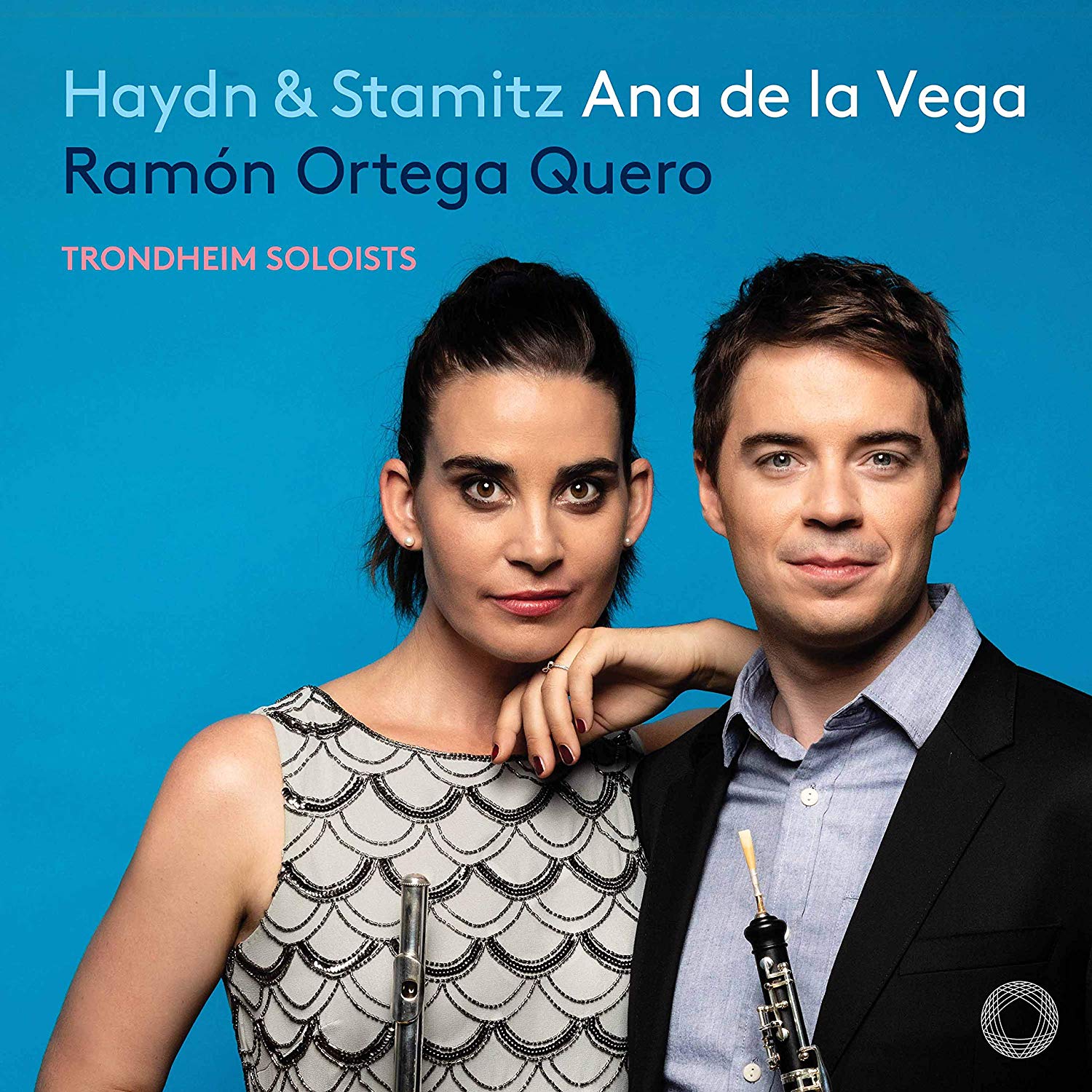HAYDN; STAMITZ Concertos for Flute and Oboe
View record and artist detailsRecord and Artist Details
Genre:
Orchestral
Label: Pentatone
Magazine Review Date: 03/2020
Media Format: CD or Download
Media Runtime: 65
Mastering:
DDD
Catalogue Number: PTC5186 823

Tracks:
| Composition | Artist Credit |
|---|---|
| (5) Concerti per la lira organizzata, Movement: C |
Joseph Haydn, Composer
Ana de la Vega, Flute Ramón Ortega Quero, Oboe Trondheim Soloists |
| Concerto for Flute, Oboe and Orchestra |
Carl (Philipp) Stamitz, Composer
Ana de la Vega, Flute Ramón Ortega Quero, Oboe Trondheim Soloists |
| Concerto for Flute and Orchestra |
Carl (Philipp) Stamitz, Composer
Ana de la Vega, Flute Trondheim Soloists |
| (5) Concerti per la lira organizzata, Movement: G |
Joseph Haydn, Composer
Ana de la Vega, Flute Ramón Ortega Quero, Oboe Trondheim Soloists |
Author: David Threasher
The lira organizzata was, as described by Richard Wigmore, ‘a high-tech hurdy-gurdy with sympathetic strings and an inbuilt miniature organ’. Haydn was commissioned in the mid-1780s to compose a handful of concertos for a pair of these odd instruments, which were an obsession of the Bourbon King of Naples and the Two Sicilies, Ferdinand IV. Like that other royal fad, the baryton (what is it with 18th-century aristos and sympatheitc strings?), it was one man’s folly and a flash in the pan, but the five surviving concertos proved a fertile source for Haydn’s later music: one of them was plundered for material for Symphony No 89, while the slow movement of No 3, recorded here, achieved immortality as the Allegretto of the Military Symphony.
Haydn himself made versions with the two lire replaced by flute and oboe, the way in which they are most commonly performed today (which is to say, not often). For intruments of such limited chromatic ability, Haydn’s harmonic shifts are particularly striking, and it’s instructive, when they are placed in such close proximity to a flute concerto and a double concerto by Carl Stamitz (1745-1801), to note Haydn’s superior ability to sidestep the obvious and the clichéd. Stamitz’s music is eminently competent and likeable but relies on stock progressions, sequences and passages in thirds in a way Haydn’s music specifically doesn’t.
Both soloists and their accompanists, one of Norway’s leading chamber ensembles, are known from previous well-received recordings in these pages. They play all this undemanding music (for the listener, at least) with ideal pose and balance.
Discover the world's largest classical music catalogue with Presto Music.

Gramophone Digital Club
- Digital Edition
- Digital Archive
- Reviews Database
- Full website access
From £8.75 / month
Subscribe
Gramophone Full Club
- Print Edition
- Digital Edition
- Digital Archive
- Reviews Database
- Full website access
From £11.00 / month
Subscribe
If you are a library, university or other organisation that would be interested in an institutional subscription to Gramophone please click here for further information.




